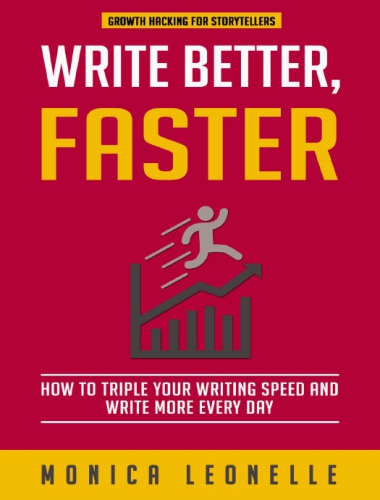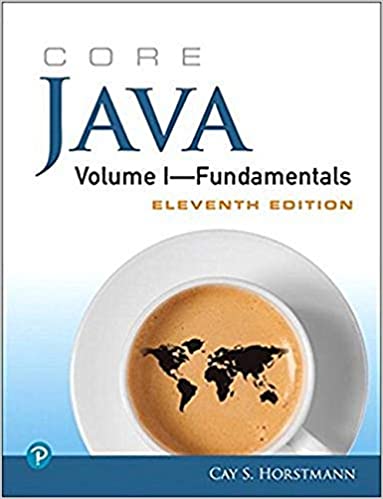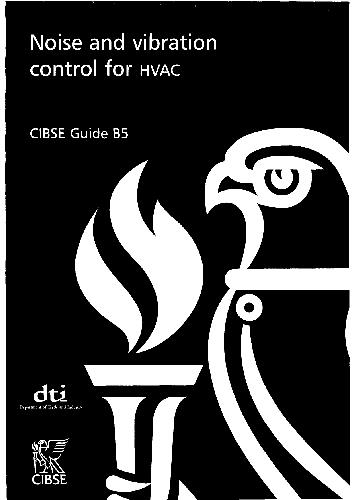| Book Name: | [PDF] Core Java Volume I–Fundamentals: 1 |
| Category: | Computer Books ( CE & IT ) |
| Language: | English |
| Format: | |
| Free Download: | Available |
Core Java Volume I–Fundamentals: 1 By Cay Horstmann
Book Description:
For serious programmers, Core Java, Volume I―Fundamentals, Eleventh Edition, is the definitive guide to writing robust, maintainable code. Whether you’re using Java SE 9, 10, or 11, it will help you achieve a deep and practical understanding of the language and API, and its hundreds of realistic examples reveal the most powerful and effective ways to get the job done.
Cay Horstmann’s updated examples reflect Java’s long-awaited modularization, showing how to write code that’s easier to manage and evolve. You’ll learn how to use JShell’s new Read-Eval-Print Loop (REPL) for more rapid and exploratory development, and apply key improvements to the Process API, contended locking, logging, and compilation.
The #1 Java Guide for Serious Programmers: Fully Updated for Java SE 9, 10 & 11
For serious programmers, Core Java, Volume I—Fundamentals, Eleventh Edition, is the definitive guide to writing robust, maintainable code. Whether you’re using Java SE 9, 10, or 11, it will help you achieve a deep and practical understanding of the language and API, and its hundreds of realistic examples reveal the most powerful and effective ways to get the job done.
Cay Horstmann’s updated examples reflect Java’s long-awaited modularization, showing how to write code that’s easier to manage and evolve. You’ll learn how to use JShell’s new Read-Eval-Print Loop (REPL) for more rapid and exploratory development, and apply key improvements to the Process API, contended locking, logging, and compilation.
In this first of two volumes, Horstmann offers in-depth coverage of fundamental Java and UI programming, including objects, generics, collections, lambda expressions, Swing design, concurrency, and functional programming. If you’re an experienced programmer moving to Java SE 9, 10, or 11, there’s no better source for expert insight, solutions, and code.
– Master foundational techniques, idioms, and best practices for writing superior Java code
– Leverage the power of interfaces, lambda expressions, and inner classes
– Harden programs through effective exception handling and debugging
– Write safer, more reusable code with generic programming
– Improve performance and efficiency with Java’s standard collections
– Build cross-platform GUIs with the Swing toolkit
– Fully utilize multicore processors with Java’s improved concurrency
Table of contents :
About This E-Book……Page 2
Title Page……Page 3
Copyright Page……Page 4
Contents……Page 5
Preface……Page 19
Acknowledgments……Page 26
Chapter 1: An Introduction to Java……Page 28
1.1 Java as a Programming Platform……Page 29
1.2 The Java “White Paper” Buzzwords……Page 30
1.3 Java Applets and the Internet……Page 37
1.4 A Short History of Java……Page 38
1.5 Common Misconceptions about Java……Page 42
Chapter 2: The Java Programming Environment……Page 46
2.1 Installing the Java Development Kit……Page 47
2.2 Using the Command-Line Tools……Page 54
2.3 Using an Integrated Development Environment……Page 60
2.4 JShell……Page 64
Chapter 3: Fundamental Programming Structures in Java……Page 68
3.1 A Simple Java Program……Page 69
3.2 Comments……Page 74
3.3 Data Types……Page 75
3.4 Variables and Constants……Page 82
3.5 Operators……Page 87
3.6 Strings……Page 99
3.7 Input and Output……Page 117
3.8 Control Flow……Page 130
3.9 Big Numbers……Page 154
3.10 Arrays……Page 157
Chapter 4: Objects and Classes……Page 177
4.1 Introduction to Object-Oriented Programming……Page 178
4.2 Using Predefined Classes……Page 185
4.3 Defining Your Own Classes……Page 197
4.4 Static Fields and Methods……Page 213
4.5 Method Parameters……Page 222
4.6 Object Construction……Page 230
4.7 Packages……Page 242
4.8 JAR Files……Page 257
4.9 Documentation Comments……Page 264
4.10 Class Design Hints……Page 271
Chapter 5: Inheritance……Page 275
5.1 Classes, Superclasses, and Subclasses……Page 276
5.2 Object: The Cosmic Superclass……Page 306
5.3 Generic Array Lists……Page 325
5.4 Object Wrappers and Autoboxing……Page 335
5.5 Methods with a Variable Number of Parameters……Page 340
5.6 Enumeration Classes……Page 342
5.7 Reflection……Page 345
5.8 Design Hints for Inheritance……Page 375
Chapter 6: Interfaces, Lambda Expressions, and Inner Classes……Page 379
6.1 Interfaces……Page 380
6.2 Lambda Expressions……Page 411
6.3 Inner Classes……Page 434
6.4 Service Loaders……Page 456
6.5 Proxies……Page 459
Chapter 7: Exceptions, Assertions, and Logging……Page 468
7.1 Dealing with Errors……Page 470
7.2 Catching Exceptions……Page 480
7.3 Tips for Using Exceptions……Page 497
7.4 Using Assertions……Page 501
7.5 Logging……Page 506
7.6 Debugging Tips……Page 533
Chapter 8: Generic Programming……Page 540
8.1 Why Generic Programming?……Page 541
8.2 Defining a Simple Generic Class……Page 545
8.3 Generic Methods……Page 547
8.4 Bounds for Type Variables……Page 549
8.5 Generic Code and the Virtual Machine……Page 552
8.6 Restrictions and Limitations……Page 559
8.7 Inheritance Rules for Generic Types……Page 571
8.8 Wildcard Types……Page 574
8.9 Reflection and Generics……Page 584
Chapter 9: Collections……Page 598
9.1 The Java Collections Framework……Page 599
9.2 Interfaces in the Collections Framework……Page 611
9.3 Concrete Collections……Page 613
9.4 Maps……Page 642
9.5 Views and Wrappers……Page 657
9.6 Algorithms……Page 670
9.7 Legacy Collections……Page 683
Chapter 10: Graphical User Interface Programming……Page 697
10.1 A History of Java User Interface Toolkits……Page 698
10.2 Displaying Frames……Page 700
10.3 Displaying Information in a Component……Page 709
10.4 Event Handling……Page 736
10.5 The Preferences API……Page 765
Chapter 11: User Interface Components with Swing……Page 773
11.1 Swing and the Model-View-Controller Design Pattern……Page 774
11.2 Introduction to Layout Management……Page 780
11.3 Text Input……Page 787
11.4 Choice Components……Page 797
11.5 Menus……Page 820
11.6 Sophisticated Layout Management……Page 842
11.7 Dialog Boxes……Page 859
Chapter 12: Concurrency……Page 889
12.1 What Are Threads?……Page 891
12.2 Thread States……Page 897
12.3 Thread Properties……Page 901
12.4 Synchronization……Page 909
12.5 Thread-Safe Collections……Page 946
12.6 Tasks and Thread Pools……Page 969
12.7 Asynchronous Computations……Page 985
12.8 Processes……Page 1004
Appendix……Page 1015
Index……Page 1019
Credits……Page 1144
Code Snippets……Page 1151
Core Java® Volume II—Advanced Features – Pearsoncmg
Core Java. Volume I – Fundamentals
Author(s): Horstmann Cay S.
Publisher: Pearson, Year: 2019
ISBN: 9780135167199,0135167191
Related Results : core java 2 volume 1 fundamentals,core java volume 1 fundamentals by cay s horstmann gary cornell,core java volume i–fundamentals 1,core java volume i–fundamentals 1 (core series),
Related More Books
See More POST On : Engineering Books









![[PDF] Draw Buildings and Cities in 15 Minutes Draw Buildings and Cities in 15 Minutes pdf](https://www.freepdfbook.com/wp-content/uploads/2021/06/Draw-Buildings-and-Cities-in-15-Minutes-218x150.jpg)








![[PDF] Digital Image Processing An Algorithmic Introduction Using Java Digital Image Processing An Algorithmic Introduction Using Java](https://www.freepdfbook.com/wp-content/uploads/2022/06/Digital-Image-Processing-An-Algorithmic-Introduction-Using-Java.jpg)




![[PDF] 43 Years JEE ADVANCED + JEE MAIN Chapterwise & Topicwise Solved Papers 43 Years JEE ADVANCED (1978-2020) + JEE MAIN Chapterwise & Topicwise Solved Papers Physics PDF](https://www.freepdfbook.com/wp-content/uploads/2022/03/43-Years-JEE-ADVANCED-1978-2020.jpg)

![[PDF] Problems in Physical Chemistry for JEE (Main & Advanced) Problems in Physical Chemistry for JEE (Main & Advanced) Free PDF Book Download](https://www.freepdfbook.com/wp-content/uploads/2022/03/Problems-in-Physical-Chemistry-for-JEE-Main-Advanced.jpg)
![[PDF] Engineering Physics (McGraw Hill)](https://www.freepdfbook.com/wp-content/uploads/2021/05/bafc8c2685bb6823a9c56134f7fba5df.jpeg)

![[PDF] Engineering Chemistry By Shashi Chawla](https://www.freepdfbook.com/wp-content/uploads/2022/05/Theory-And-Practicals-of-Engineering-Chemistry-By-Shashi-Chawla-free-pdf-book.jpeg)
![[PDF] Chemistry: An Introduction to Organic, Inorganic & Physical Chemistry Chemistry: An Introduction to Organic, Inorganic & Physical Chemistry](https://www.freepdfbook.com/wp-content/uploads/2022/04/Chemistry-An-Introduction-to-Organic-Inorganic-Physical-Chemistry.jpg)
![[PDF] Essentials of Physical Chemistry Essentials of Physical Chemistry Free PDF Book by Bahl](https://www.freepdfbook.com/wp-content/uploads/2022/04/Essentials-of-Physical-Chemistry-bahl.jpg)
![[PDF] Biological control of plant-parasitic nematodes: soil ecosystem management in sustainable agriculture Biological control of plant-parasitic nematodes: soil ecosystem management in sustainable agriculture](https://www.freepdfbook.com/wp-content/uploads/2022/05/Biological-control-of-plant-parasitic-nematodes-soil-ecosystem-management-in-sustainable-agriculture.jpg)
![[PDF] Human Anatomy: Color Atlas and Textbook Human Anatomy: Color Atlas and Textbook Free PDF Book](https://www.freepdfbook.com/wp-content/uploads/2022/05/Human-Anatomy-Color-Atlas-and-Textbook.jpg)
![[PDF] Concepts of Biology Book [Free Download]](https://www.freepdfbook.com/wp-content/uploads/2022/05/Concepts-of-Biology.jpg)
![[PDF] Essentials of Biology [Free Download] Essentials of Biology Free PDF BOok Download](https://www.freepdfbook.com/wp-content/uploads/2022/05/Essentials-of-Biology-Free-PDF-Book-Downlaod.jpg)
![[PDF] Human Biology Book [Free Download]](https://www.freepdfbook.com/wp-content/uploads/2022/05/PDF-Human-Biology-Book-Free-Download.jpg)



